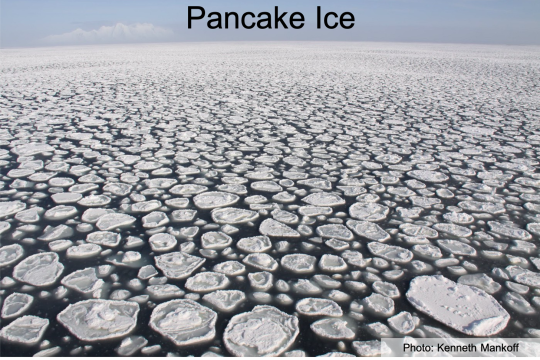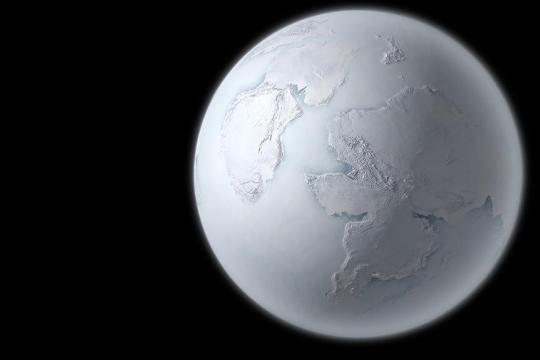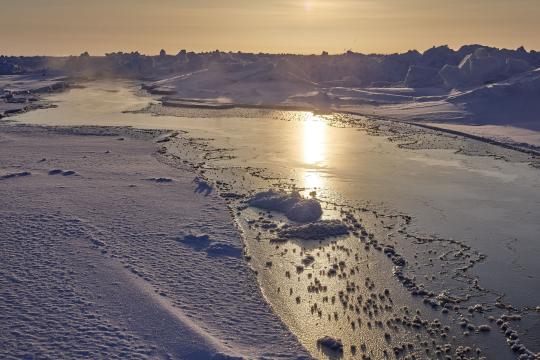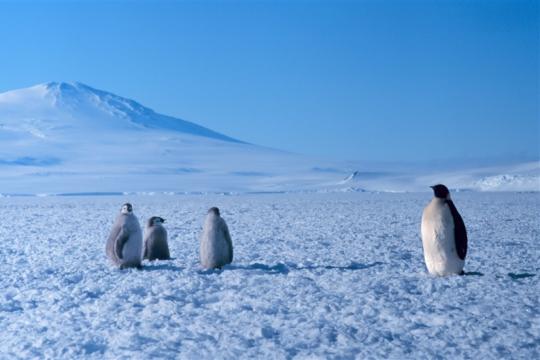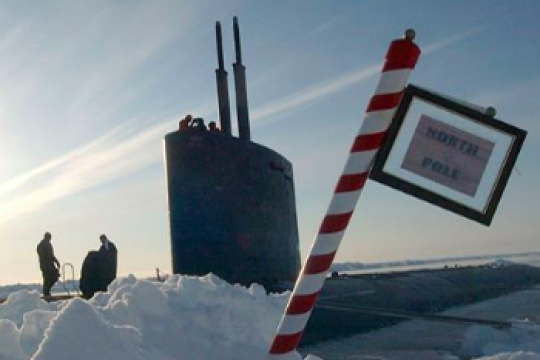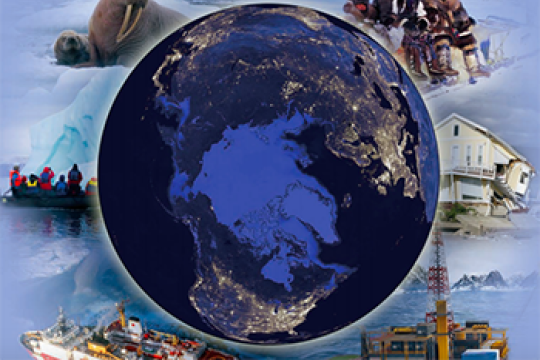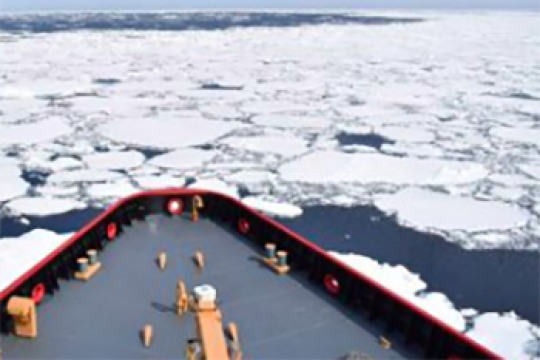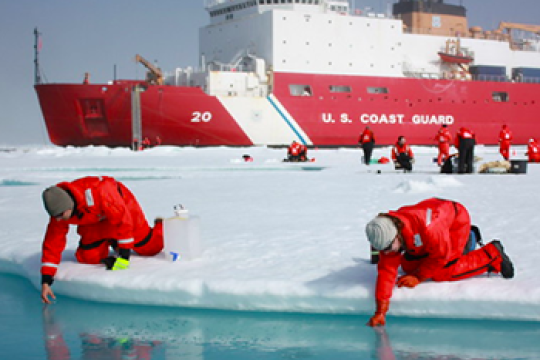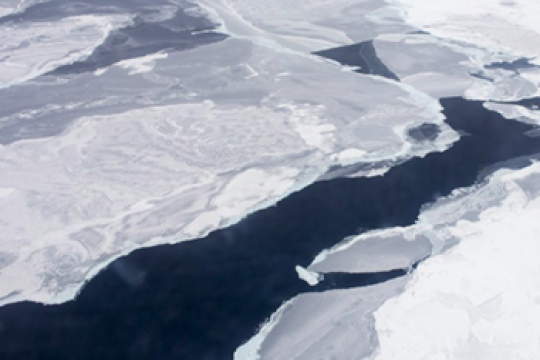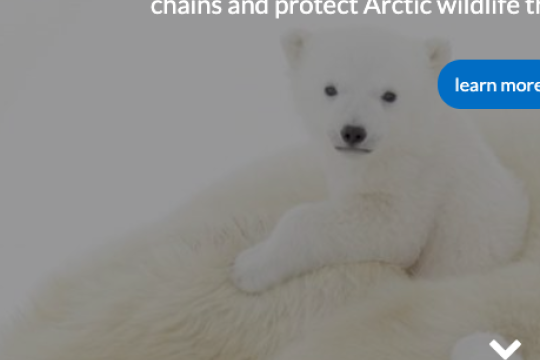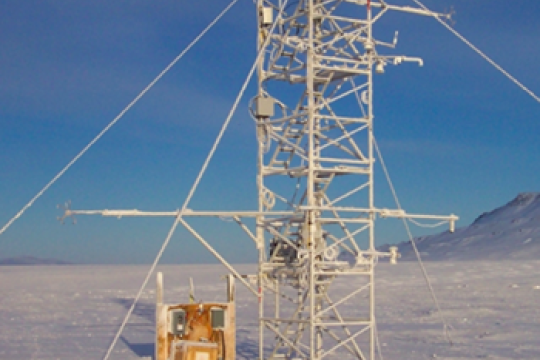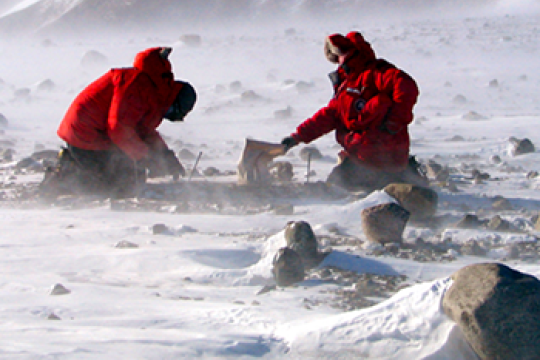Arguing from evidence
The Writing's in the Ice
Did you know that sea ice has a life cycle? Learn more in this short (~30 minute) activity.
Lesson plan
Subject: Arguing from evidence, mosaic monday, Sea ice
Grade Level: Middle School, High School
Developer: CIRES
Did you know that sea ice has a life cycle? Learn more in this short (~30 minute) activity.
Lesson plan
Subject: Arguing from evidence, mosaic monday, Sea ice
Grade Level: Middle School, High School
Developer: CIRES
Quick Bite: Melting Ice-Albedo Feedback
Sea ice extent in the Arctic is on the decline. Could the opposite of a Snowball Earth happen? Figure credit: MIKKEL JUUL JENSEN/SPL/COSMOS
Project of Mosaic Quick bite
Subject: Arguing from evidence, Climate, Earth science, mosaic monday, Sea ice
Grade Level: Middle School, High School, University/college
Developer: CIRES
Sea ice extent in the Arctic is on the decline. Could the opposite of a Snowball Earth happen? Figure credit: MIKKEL JUUL JENSEN/SPL/COSMOS
Project of Mosaic Quick bite
Subject: Arguing from evidence, Climate, Earth science, mosaic monday, Sea ice
Grade Level: Middle School, High School, University/college
Developer: CIRES
Quick Bite: Albedo Comparison
How do you think the average albedo of the Arctic compares to the average albedo of the entire Earth? Photo credit: Michael Gutsche/AWI
Quick bite
Subject: Arguing from evidence, Earth science, mosaic monday
Grade Level: Middle School, High School
Developer: CIRES
How do you think the average albedo of the Arctic compares to the average albedo of the entire Earth? Photo credit: Michael Gutsche/AWI
Quick bite
Subject: Arguing from evidence, Earth science, mosaic monday
Grade Level: Middle School, High School
Developer: CIRES
Project PARKA (Planting AntaRtica in KAnsas)
Explore this unit composed of four lessons designed to provide high school students with the background knowledge and understanding of the ocean, Antarctic science, food webs, climate change, and ocean acidification. Photo by Michael Van Woert, NOAA/NESDIA
NGSS Aligned Lesson plan
Subject: Analyzing and interpreting data, Arguing from evidence, Climate, Computational thinking, Constructing explanations, Earth science, Ecosystems, Life science, Oceans and ocean circulation
Grade Level: High School
Explore this unit composed of four lessons designed to provide high school students with the background knowledge and understanding of the ocean, Antarctic science, food webs, climate change, and ocean acidification. Photo by Michael Van Woert, NOAA/NESDIA
NGSS Aligned Lesson plan
Subject: Analyzing and interpreting data, Arguing from evidence, Climate, Computational thinking, Constructing explanations, Earth science, Ecosystems, Life science, Oceans and ocean circulation
Grade Level: High School
Cold Cases: Who Won the Race to the North Pole - Cook or Peary?
Students use primary sources to conduct a mock trial to debate whether Cook or Peary was the first explorer to reach the North Pole.
Lesson plan
Subject: Arguing from evidence, ELA, Expeditions, Geography, Obtaining and evaluating information
Grade Level: High School
Developer: Ohio State University
Students use primary sources to conduct a mock trial to debate whether Cook or Peary was the first explorer to reach the North Pole.
Lesson plan
Subject: Arguing from evidence, ELA, Expeditions, Geography, Obtaining and evaluating information
Grade Level: High School
Developer: Ohio State University
Arctic SMARTIC (Strategic Management of Resources in Times of Change)
Students will build off of an introductory presentation on climate change in the Arctic to devise a strategy to manage climate change impacts on a global scale (the Arctic). After a brief synopsis on current issues and management approaches in the Arctic, students will use information based on the stakeholders and interests they've identified in readings done before class, to pinpoint areas of high interest, negotiate conflicts, and develop a sustainable, multi-stakeholder management plan for high priority areas.
Lesson plan
Subject: Arguing from evidence, ELA, Geography, Obtaining and evaluating information
Grade Level: High School, University/college
Students will build off of an introductory presentation on climate change in the Arctic to devise a strategy to manage climate change impacts on a global scale (the Arctic). After a brief synopsis on current issues and management approaches in the Arctic, students will use information based on the stakeholders and interests they've identified in readings done before class, to pinpoint areas of high interest, negotiate conflicts, and develop a sustainable, multi-stakeholder management plan for high priority areas.
Lesson plan
Subject: Arguing from evidence, ELA, Geography, Obtaining and evaluating information
Grade Level: High School, University/college
Arctic Climate Curriculum: Exploring the Arctic
This activity introduces students to the Arctic, including different definitions of the Arctic and exploration of the Arctic environment and Arctic people. Students set out on a virtual exploration of the geography of the Arctic using Google Earth. Students go on to learn about meteorological parameters that are measured by Arctic research teams and practice the measurements in hands-on activities.
Lesson plan
Subject: Analyzing and interpreting data, Arguing from evidence, Asking questions, Computational thinking, Earth science, Geography, Life science, Obtaining and evaluating information, Physical science, Planning investigations
Grade Level: Middle School, High School, University/college
Developer: CIRES
This activity introduces students to the Arctic, including different definitions of the Arctic and exploration of the Arctic environment and Arctic people. Students set out on a virtual exploration of the geography of the Arctic using Google Earth. Students go on to learn about meteorological parameters that are measured by Arctic research teams and practice the measurements in hands-on activities.
Lesson plan
Subject: Analyzing and interpreting data, Arguing from evidence, Asking questions, Computational thinking, Earth science, Geography, Life science, Obtaining and evaluating information, Physical science, Planning investigations
Grade Level: Middle School, High School, University/college
Developer: CIRES
Arctic Ocean Exploration: Would You Like a Sample?
Students simulate a sampling of Arctic marine biology communities to learn about the limitations of biologic sampling techniques and marine biodiversity in the Arctic Ocean.
Lesson plan
Subject: Analyzing and interpreting data, Arguing from evidence, Ecosystems, Life science, Oceans and ocean circulation
Grade Level: Middle School
Developer: NOAA
Students simulate a sampling of Arctic marine biology communities to learn about the limitations of biologic sampling techniques and marine biodiversity in the Arctic Ocean.
Lesson plan
Subject: Analyzing and interpreting data, Arguing from evidence, Ecosystems, Life science, Oceans and ocean circulation
Grade Level: Middle School
Developer: NOAA
Arctic Ocean Exploration: Being Productive in the Arctic Ocean
Students analyze sea ice cover, nutrient, and primary productivity data to understand factors that may limit primary productivity in the Arctic Ocean.
Lesson plan
Subject: Analyzing and interpreting data, Arguing from evidence, Ecosystems, Life science, Oceans and ocean circulation, Sea ice
Grade Level: High School
Developer: NOAA
Students analyze sea ice cover, nutrient, and primary productivity data to understand factors that may limit primary productivity in the Arctic Ocean.
Lesson plan
Subject: Analyzing and interpreting data, Arguing from evidence, Ecosystems, Life science, Oceans and ocean circulation, Sea ice
Grade Level: High School
Developer: NOAA
EcoChains: Arctic Life Game
The EcoChains Arctic Life game accurately models the effects of climate change on wildlife food-webs. The game shows how human actions such as the development of alternative energy can influence carbon pollution.
Game
Subject: Arguing from evidence, Constructing explanations, Earth science, Ecosystems, Life science, Obtaining and evaluating information, Sea ice
Grade Level: 3-5, Middle School, High School
Developer: Ecochains
The EcoChains Arctic Life game accurately models the effects of climate change on wildlife food-webs. The game shows how human actions such as the development of alternative energy can influence carbon pollution.
Game
Subject: Arguing from evidence, Constructing explanations, Earth science, Ecosystems, Life science, Obtaining and evaluating information, Sea ice
Grade Level: 3-5, Middle School, High School
Developer: Ecochains
Arctic Climate Curriculum: Exploring Arctic Climate Data
Students dig into authentic Arctic climate data to unravel some causes and effects related to the seasonal melting of the snowpack. In particular, students learn about albedo and its relationship to snowmelt. This concept applied to global climate change on a large scale as well, and students go on to learn about the role of albedo as a self-reinforcing feedback mechanism.
NGSS Aligned Lesson plan
Subject: Analyzing and interpreting data, Arguing from evidence, Climate, Computational thinking, Constructing explanations, Earth science, Physical science
Grade Level: Middle School, High School, University/college
Developer: CIRES
Students dig into authentic Arctic climate data to unravel some causes and effects related to the seasonal melting of the snowpack. In particular, students learn about albedo and its relationship to snowmelt. This concept applied to global climate change on a large scale as well, and students go on to learn about the role of albedo as a self-reinforcing feedback mechanism.
NGSS Aligned Lesson plan
Subject: Analyzing and interpreting data, Arguing from evidence, Climate, Computational thinking, Constructing explanations, Earth science, Physical science
Grade Level: Middle School, High School, University/college
Developer: CIRES
Arctic Climate Curriculum: Do you really want to visit the Arctic?
This jigsaw activity is designed for students to become familiar with several datasets of Arctic weather data, collected in Eureka on Ellesmere Island. Students join a role-playing activity to read and interpret graphs while considering the optimal time to plan a research mission to the Arctic.
NGSS Aligned Lesson plan
Subject: Analyzing and interpreting data, Arguing from evidence, Asking questions, Climate, Computational thinking, Constructing explanations, Earth science, Obtaining and evaluating information, Physical science
Grade Level: Middle School, High School, University/college
Developer: CIRES
This jigsaw activity is designed for students to become familiar with several datasets of Arctic weather data, collected in Eureka on Ellesmere Island. Students join a role-playing activity to read and interpret graphs while considering the optimal time to plan a research mission to the Arctic.
NGSS Aligned Lesson plan
Subject: Analyzing and interpreting data, Arguing from evidence, Asking questions, Climate, Computational thinking, Constructing explanations, Earth science, Obtaining and evaluating information, Physical science
Grade Level: Middle School, High School, University/college
Developer: CIRES
